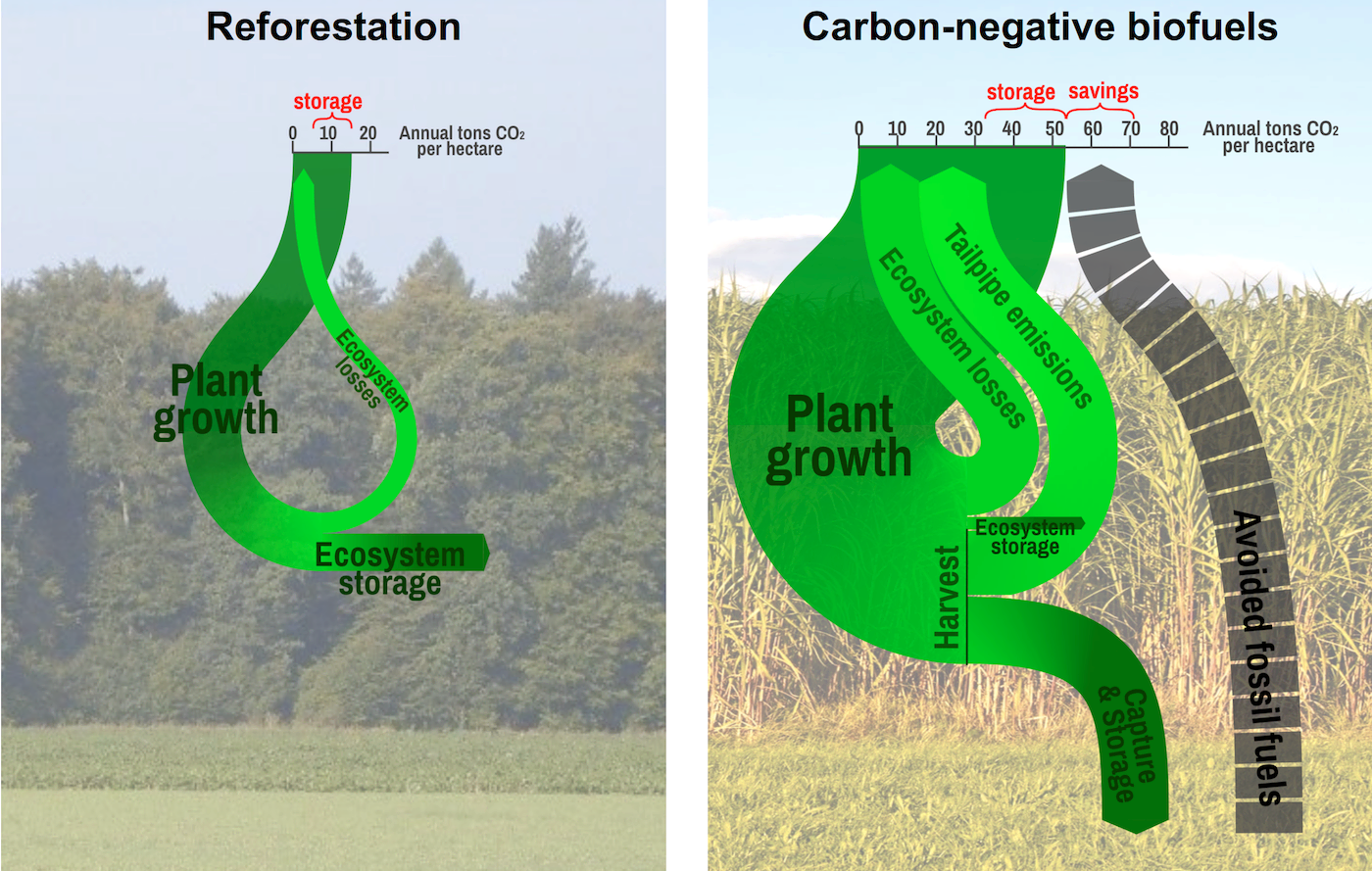- Undergraduate
Bachelor's Degrees
Bachelor of ArtsBachelor of EngineeringDual-Degree ProgramUndergraduate AdmissionsUndergraduate Experience
- Graduate
Graduate Experience
- Research
- Entrepreneurship
- Community
- About
-
Search
All Thayer News
Study Finds Advanced Biofuels Could Fight Climate Change
Aug 24, 2020 | by Julie Bonette
A new study led by researchers from Colorado State University and Dartmouth has found that biofuels can mitigate the impacts of climate change, refuting arguments that carbon debt, opportunity cost, and indirect land use prevent such mitigation. The study, published by Proceedings of the National Academy of Sciences (PNAS), used a quantitative ecosystem modeling approach to show that cellulosic biofuels can realize greenhouse gas mitigation.
“Our analysis shows that large climate benefits can, in fact, be achieved through biofuels if there is an intent to do so,” said Lee Lynd, initiator and coequal lead contributor to the paper, and the Paul E. and Joan H. Queneau Distinguished Professor in Environmental Engineering Design at Dartmouth.
Biofuel and bioenergy systems are integral to scenarios for displacing fossil fuel use—particularly in aviation, shipping, and trucking, all transportation modes that are difficult to electrify. But the net greenhouse gas mitigation benefit of these biofuel and bioenergy systems has been controversial due to concerns around carbon losses from changes in land use and foregone sequestration benefits from alternative land uses.
Dartmouth Engineering Professors Lynd and Mark Laser contributed to the study that predicted significant climate benefits stemming from the use of advanced biofuel technologies. Accounting for all of the carbon flows in biofuel systems and comparing them to those of grassland and forest restoration, the team, which also included plant scientists and ecologists, found that there are clear strategies for biofuels to have a net carbon benefit, as well as some strategies that do not yield such benefits.
“Robust paths to net greenhouse gas mitigation and negative emissions via advanced biofuels,” is one of the first studies to look at both current and future carbon-negative biofuels.
It has been a challenge for the biofuel industry to demonstrate commercial viability for cellulosic biofuels, created using nonedible parts of plants. Switchgrass, a native grass that grows in many parts of North America, is a leading candidate for the sustainable production of plant material.
The research team used modeling to simulate switchgrass cultivation, cellulosic biofuel production, and carbon capture and storage, tracking ecosystem and carbon flows. Scientists then compared this modeling to alternative ways to store carbon on the land, including growing forest or grassland, and found that on land where farmers or land managers were transitioning out of growing crops or maintaining pastures for grazing, cultivating switchgrass for cellulosic ethanol production had a per-hectare mitigation potential comparable to reforestation, and several-fold greater than grassland restoration. Using switchgrass can be particularly helpful in parts of the country where grass rather than trees is the natural vegetation type.
The team also analyzed a variety of ways to clean up carbon pollution, with the simplest idea being to grow trees that can store more carbon. Other alternatives are outlined and analyzed in the study, including biofuel production with carbon capture and storage, resulting in negative emissions, meaning a net removal of carbon dioxide from the atmosphere.
Moving forward, the research team hopes to expand on its modeling, scaling it up nationally rather than looking at a few specific sites across the country.
This research was funded in part by the National Institute of Food and Agriculture - U.S. Department of Agriculture, the U.S. Department of Energy via the Center for Bioenergy Innovation, and the São Paulo Research Foundation in Brazil.
Note: Content partially sourced from "Advanced biofuels show promise for replacing some fossil fuels," courtesy of Colorado State University.
For contacts and other media information visit our Media Resources page.

